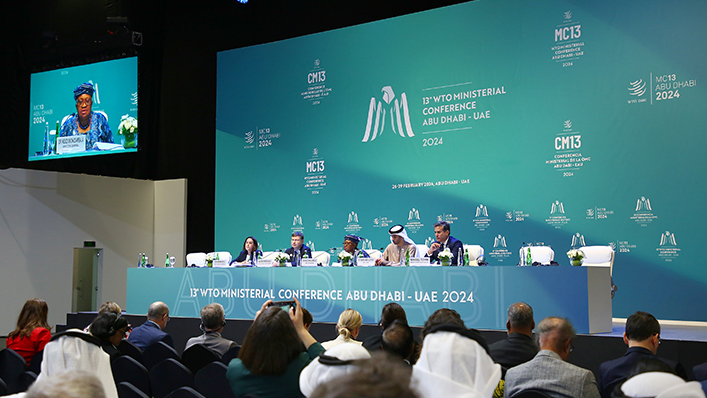
WTO members participating in the initiative began incorporating the new disciplines on good regulatory practice into their existing services commitments once the disciplines were successfully concluded in December 2021. The certification process for these disciplines has now been completed for 52 WTO members, with more expected to be finalized in the coming weeks.
The disciplines seek to mitigate unintended trade-restrictive effects of measures relating to licensing requirements and procedures, qualification requirements and procedures and technical standards. They seek to make the regulatory environment more conducive to business and can help particularly micro, small and medium-sized enterprises as well as women entrepreneurs.
The disciplines will be applied on a “most-favoured nation” principle, meaning that they will benefit all WTO members. New research by the WTO finds that their implementation will help to reduce services trade costs by 10 per cent for lower-middle income economies and 14 per cent for upper‑middle income economies, with overall savings of USD 127 billion. If all WTO members implement the disciplines, large welfare and trade increases are projected, especially for developing economies. By 2032, global real income is projected to increase by at least 0.3 per cent, representing USD 301 billion and global service exports are expected to rise by 0.8 per cent, amounting to USD 206 billion.
Welcoming the entry into force of the disciplines, DG Okonjo-Iweala said: “Services are the largest generator of jobs — particularly for women and young people, and they have in most recent years been the biggest driver of commercial growth. It is therefore high time that recognized good regulatory practices on services trade have come within the ambit of the WTO. The implementation of the disciplines holds huge potential for developing economies.”
The United Arab Emirates’ Minister for Foreign Trade, Thani bin Ahmed Al Zayoudi said: “The implementation of this outcome will significantly reduce red tape and facilitate services trade. …. It will enable services exporters to trade with confidence. … While goods, manufacturing and commodities will always play a role in the economy, much of our future prosperity will rely on exports of services. … The open and transparent nature of this achievement represents the WTO at its best.”
Costa Rica’s Foreign Trade Minister, Manuel Tovar, whose country coordinates the initiative, said: “This is the first outcome on services trade in more than 25 years — a much-needed update to the WTO rulebook. It is very significant because WTO members accounting for more than 92 per cent of world services trade are committed to implementing these practices. Members participating in this outcome come from various levels of development, from different regions with different regulatory capacity and approaches — but they all see it as a way forward in updating the WTO rule book, making use of the rules and procedures agreed under the General Agreement on Trade in Services. This demonstrates that it is possible to make progress in the WTO’s negotiating pillar, to find compromise among committed members to support and strengthen the multilateral trading system.”
“This outcome represents our collective efforts and demonstrates that common ground can be found in the WTO, even when there are divergent views,” noted the European Commission’s Vice-President Valdis Dombrovskis. “The disciplines address a long-standing request from our business community for transparent and efficient authorisation procedures and cater for the needs of modern services trade. They will drastically improve the way that our businesses are treated on the ground, in 72 countries across the globe,” he added.
The disciplines are incorporated in participating members’ schedules of services commitments and will be applied on a “most-favoured nation” principle, meaning that they will benefit all WTO members.
A new Factsheet on Services Domestic Regulation can be found here.
The negotiations were initiated at the 11th Ministerial Conference in Buenos Aires in 2017. Further information on the Joint Initiative on Services Domestic Regulation can be found here.
The 2021 Declaration setting out the commitments on services domestic regulation can be found here.
A video explaining the outcome on services domestic regulation can be found here.
A total of 72 economies — comprising WTO members and two acceding members (Timor-Leste and Comoros) — are committed to implementing the new disciplines. Ecuador joined the initiative on 27 February.
Share
Reach us to explore global export and import deals